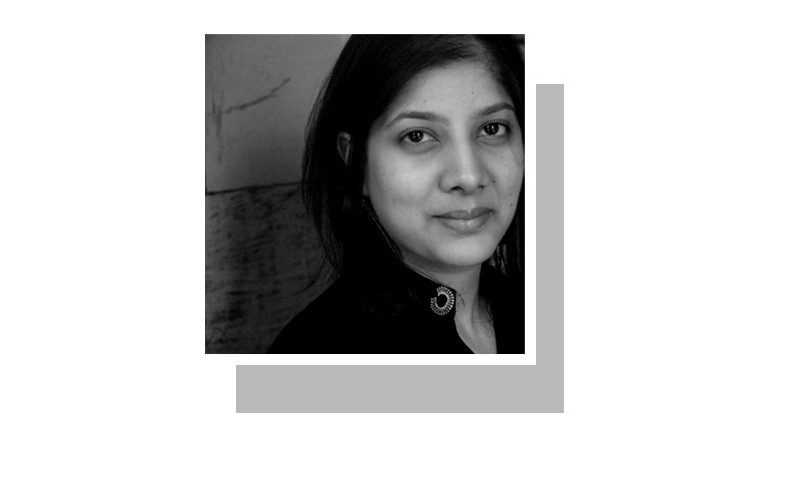THE UK last week celebrated national poetry day — an annual celebration of poetry with the aim of attracting new audiences to the genre. Newspapers were filled with famous verse and poetry readings were organised at venues as diverse as pubs and public schools, underground trains and elderly care homes. News also spread that the British army is incorporating poetry reading into its officer preparation courses. The Army School of Education will ask officers to read poems to improve their ability to cope with ambiguity. Instructors believe the structure and symbolism of poetry, which demand interpretation, will enable officers to think in a more complex way — beyond their training manuals — when presented with difficult situations.
The notion of a national poetry day betrays an anxiety about the genre’s fate, one that is not commensurate with reality. Poetry book sales are up by 42 per cent since 2013, libraries host weekly poetry readings, Shakespeare’s verse booms from theatres nationwide, and poetry is a staple of the curriculum.
The anxiety, then, can perhaps be interpreted as an anxiety of elite intellectualism, with which poetry is often — incorrectly — associated (incorrectly, because poetry is arguably the most egalitarian genre, encompassing everything from advertising jingles to rap music). Brexit-driving populist forces have successfully demonised intellectuals, creating a siege mentality that spurs the desire to protect poetry. And here’s where this British celebration may have a lesson for Pakistan.
A British celebration has a lesson for Pakistan.
Our country does not need a national poetry day; the genre is too entrenched in our social fabric. The well-chosen couplet is the linchpin of effective social, romantic and political communication. Mushairas are routine, radio DJs nightly open the airwaves for audiences to share their verse, and our Twitterati respond to trolls with lines from Faiz and Mir. Poetry in our vernacular languages is thriving as local magazines and websites proliferate. Poetry lives through music, from jugalbandis to Coke Studio covers. And folk poetry is everywhere: graffiti comes in rhymes, and wistful couplets are still the finest adornment on our trucks and rickshaws.
But the prevalence of poetry should not breed complacency. Poetry is still a hallmark of Pakistan’s cultural heritage. However, as the trend towards valourising Arabic and Chinese intensifies, anything with Persian roots, including poetry, may begin to seem inaccessible or unfamiliar, or worse, suspicious.
Growing wariness of intellectuals and debates also makes poetry vulnerable. To be fully appreciated, classical poetry requires extensive study, fluency in Persian, historical knowledge. In our tradition, poetry is also the medium of argumentation. But our schools and universities are increasingly ideological battlegrounds, with less patience for critique, questioning, debate, ambiguity. Yet these are intrinsic to poetry. How can poetry endure if the discursive mode of thinking it both requires and engenders is unwelcome?
There’s also a practical aspect, as higher education in a post-CPEC Pakistan will increasingly be inclined toward science and technology, with less regard for and investment in the humanities.
Authoritarian tendencies in our society may also jeopardise access to and promotion of poetry. Our poetic tradition is, after all, socially conscious and resistant, penned against colonial or military rule, against injustice. Recent popular revivals of poetry have been in the context of civil society movements and election cycles. Think of Aitzaz Ahsan’s poem becoming the anthem of the lawyers’ movement, the Mazdoor Kissan-affiliated band Laal putting Jalib and Faiz to music, Maryam Nawaz’s choice of a stanza from Faiz as her first tweet after imprisonment. If poetry means political activism, it is more jeopardised than we may realise.
Growing extremism may also lead to the sidelining of some of our greatest poets. Khadim Hussain Rizvi quotes Iqbal with flair, and rather selectively, but will likely be less tolerant of the secularism and irreverence of Ghalib, Faiz, Faraz, etc. Inevitably, the poetic landscape, like other socio-cultural spaces, will undergo a process whereby some voices or selected verses are deemed acceptable and others blacklisted for insufficient religious content or nationalism.
Unlike the UK, Pakistani poetry is not threatened by populism, but arguably by more powerful social and political shifts. These cannot be challenged with a commemorative day. They require a deeper public and intellectual investment in poetry. It will soon not be sufficient to quote or write, but to delve into the meaning and context. Vernacular poetry is particularly well situated to survive challenges because of the unique history, context and cultural heritage of each linguistic tradition. Of all the sociopolitical acts we can engage in to help Pakistan fill its promise, what can be more pleasurable than reading poetry?
The writer is a freelance journalist.
huma.yusuf@gmail.com
Twitter: @humayusuf
Published in Dawn, October 8th, 2018











































